Election reporting dos and don’ts – polling day
Covering election campaigns was the focus of Part one in our series on Election Reporting: dos and don’ts. In this next post, DW Akademie’s Kate Hairsine explains what journalists need to think about on the big day – polling day.
DO be familiar with the election process
It might sound obvious, but as a reporter, you need need to know the ins and outs of the election process because otherwise you can’t effectively monitor the elections and report on any problems and misconduct. Some of the things you need to know BEFORE you go out to report on election day include:
– What is the procedure for opening the ballot station?
– What are the rules about campaign materials and canvassing near polling stations?
– What steps do voters have to go through to cast their votes?
– What is the procedure for sealing ballot boxes when voting closes?
– Where does the vote counting take place and who is entitled to accompany the ballot boxes there?
– Who is allowed to be present while votes are counted?
– How does the vote counting work exactly?
DO be at the polling station before it opens
If you have been allocated a particular polling station or district, you need to be there before the doors open. It gives you time to assess the atmosphere and talk to some people before you make your first report.
– Check if polling officials have arrived at the prescribed time
– Check if campaign material has been removed from inside the prescribed area around the polling station
– Ask people if they have been intimidated on the way to the polling station or while they are standing in line
– Ask if people have been promised anything such as food or money for their vote
– Find out if people were able to travel easily to the polling station: are roads open, are there any impediments such as a collapsed bridge or military checkpoints making the journey to the polling booth longer?
– Talk to any physically disabled people, the elderly or pregnant women in queue about how they got to the polling station and if there were any special provisions available for their transport
– Ask what time people started queuing up and why they are making the effort to vote
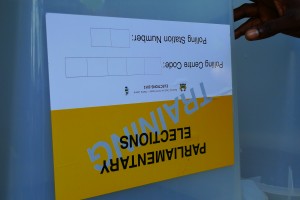
In Sierra Leone, election officials at one polling station tried unsuccessfully to use this ‘training’ ballot box
DO monitor the opening of the polling station
Depending on your country’s procedure for opening the polling station, there are several important points to look for here:
– Check if there are the correct number of ballot boxes (I have been at a polling booth where there should have been four ballot boxes – one each for president, parliamentarian, mayor and councilor – but one was missing, causing an extremely tense situation)
– Check if the ballot boxes are the correct ones for use in the elections, for example, do they have a serial number on them which allows the box to be traced in case of irregular voting
– Watch while ALL of the ballot boxes are opened in front of those present to show they are empty
– Monitor whether ALL the ballot boxes are correctly signed and sealed before voting starts
– Report whether the polling station opens on time
– Report whether election observers are present
– Watch who are the first to vote – are pregnant women, the elderly and the disabled allowed to go to the front of the queue?
– Observe if people are able to cast their vote in secrecy
DO keep talking to people during the day
You might have been up since four in the morning and feel like you have talked to every possible group of people at the polling station, but it is important to keep alert and keep monitoring the voting process even if everything seems to be running smoothly.
– Find out if any people are leaving without casting their vote because they are fed up of waiting
– Ask if there are any people who are unable to vote because their name isn’t on the electoral roll
– Monitor whether there are enough ballot papers
– Look for any illegal canvassing
– Ask people of various ages and backgrounds how they feel about voting in the election (but DON’T ask them who they voted for!)
– Ask if people how they found the voting process (easy, confusing …. )
This can also be a good time to collect some human interest stories. Here a couple I have found during the slow period on an election day:
A blind man who had to trust the person accompanying to vote for who he wanted because he was unable to read the ballot paper himself
An 94-year-old woman who talked entertainingly about how voting had changed over the decades – she cast her first vote by putting a marble into a certain jar and now she had a biometric voting card and a ballot paper.
DO stay for the close of polls
Things to look for as the polling station closes:
– Monitor if voters are being turned away at closing time without being allowed to vote even if they are still queued up
– Does the polling station close on time / close early / stay open beyond closing time even if no one is left in line?
– Observe if the ballot boxes are properly sealed before being taken to be counted
– Watch if the counting is going smoothly
– Check if observers are monitoring the counting process
– Report if there are any counting difficulties – I have observed ballot counting where the generators have run out of fuel and counting has continued by candlelight, making it difficult to see the ballot papers and difficult to check for any wrongdoings
DON’T discuss campaign issues on air while the polls are open
In many countries, parties must cease campaigning a day or two before election day. If you continue to discuss campaign issues while people are still voting, you and your media outlet could be construed as influencing the ballot. Not only is this against many media codes of practice, it could also exacerbate any tension. On election day, stick to your job of monitoring the elections and giving people a chance to voice their feelings about how the election process is going.
DON’T broadcast any comments about politicians or parties
Your job on election day is to be a neutral observer. Don’t run the risk of sparking violence by airing comments (negative or positive) about any particular party or politician. Even if someone is just giving vent to their anger about how disorganized the elections are and criticizing the current government for this, you should not air it (even if it is true).
DON’T make predictions about the outcome before the close of the polls
This is particularly dangerous. Firstly, you could influence the outcome of the elections as people might think that their preferred party has lost anyway and so change how they vote. Secondly, if the actual result differs from your predictions, it could spark conflict and violence. Just don’t do it!
DON’T make predictions about the results of voting irregularities
Although your job is to report any problems or irregularities on polling day, you can not predict what will happen as a results of these irregularities. In some countries, it is the extent of the vote tampering which is important. For example, if votes from a particular station or even a whole district are annulled, it might not change the overall results of a presidential election where millions of people are voting. In this situation, even if hundreds of polling stations are annulled, it might not void the whole election. It can be a different story though at local level where a handful of annulled votes can make all the difference to who gets in.
For more information, check out UNESCO’s list of online election reporting resources
I also highly recommend the Media & Elections handbook as well as the Election Reporting Handbook by the International Journalist Federation
In Part 3, Kate will take a look election reporting after polling day.
Election reporting dos and don’ts – before the polls
In any country, elections are the political high point of the year. Campaigns can be drawn out or seen as a forgone conclusion for an incumbent political party or leader, but they can also be violent, dividing communities and straining stability in democratically fragile countries.
The media of course can make a pivotal contribution to whether a country’s elections are free and fair. One of its main roles is to be an accurate source of information – letting voters know about the issues, the politicians and their promises and manifestos and how the electoral system works. The media also has an watchdog role in exposing any wrongdoings. In addition, the media gives voters an important forum to express their views. In the first of our three part series on election reporting, DW Akademie’s Kate Hairsine brings you some dos and don’ts of reporting in the pre-election period.
![]() read more
read more
Trainer recommendation: Writing for Broadcast Journalists
I usually take a couple of journalism text books with me on the road for training workshops. Depending on the topic, it might be a handbook on broadcast journalism or ethics or perhaps a technical guide for a camera. It’s good to have reference books to hand, but I also think it’s helpful to lend books to participants looking for more detailed information.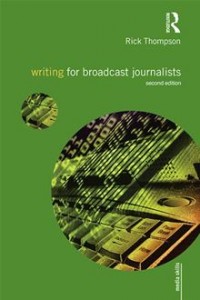
By far the book that is always most sought after, if I refer to it during a workshop, is Rick Thompson’s Writing for Broadcast Journalists (Routledge, 2010).
It’s an excellent reference book, especially for news writing and language.
Thompson has packed this very travel-friendly volume full of useful examples of news scripts and different writing techniques for radio and television. My much thumbed second edition also has a chapter on online journalism and social media.
![]() read more
read more
Keeping safe in protests
 As journalists we often have to cover protests. When people are passionate enough about an issue to get out onto the streets, it usually means there is a story worth telling. And when protests get out of hand that can be newsworthy too. But how to stay safe when covering protests? Below are a few points I keep in mind when I’ve got a protest to cover. I’m sure I’ve missed some good tips though so comment below with any advice you’d like to add.
As journalists we often have to cover protests. When people are passionate enough about an issue to get out onto the streets, it usually means there is a story worth telling. And when protests get out of hand that can be newsworthy too. But how to stay safe when covering protests? Below are a few points I keep in mind when I’ve got a protest to cover. I’m sure I’ve missed some good tips though so comment below with any advice you’d like to add.
![]() read more
read more
How do you come up with ideas for feature articles?

Do feature articles have to be about catastrophes or celebrities to be good? According to the award-winning German print journalist, Henning Sußebach, not at all. Sußebach believes that intriguing topics can be found directly on your doorstep. In this blog post, he explains how ideas taken from everyday life can be made into stories that engage readers.
![]() read more
read more
Reporting on natural disasters
By Riazul Islam
Natural disasters like cyclones and floods are a regular phenomenon in my native country Bangladesh.
As a result, the media there frequently reports on natural disasters. But working on these types of stories requires a special approach, two journalists working in the Bangladeshi capital Dhaka told me.
Mustafizur Rahman is a journalist from New Age, a daily English newspaper published in Dhaka. Iftekhar Mahmud works for Prothom Alo, the leading Bengali newspaper in Bangladesh. They shared their experiences and opinions on what preparations journalists should take before and while covering a natural disaster. Mustafizur and Iftekhar say a reporter faces many challenges when going to cover an area hit by a natural disaster. Before departing to the region, a journalist should of course be sure to check his equipment. But there are other key issues to remember when writing a report on the affected area and its people.
![]() read more
read more
Interview: How do I get more traffic from Google?
 For the owners of small news websites and blogs it remains a major issue – how do you use Google and other search engines to get more people to come to your site? After all, even the most entertaining article in the world is useless if nobody reads it. We spoke to Sebastian Katthoever, from the strategic planning section of DW’s New Media department, about how Search Engine Optimisation (SEO) really works.
For the owners of small news websites and blogs it remains a major issue – how do you use Google and other search engines to get more people to come to your site? After all, even the most entertaining article in the world is useless if nobody reads it. We spoke to Sebastian Katthoever, from the strategic planning section of DW’s New Media department, about how Search Engine Optimisation (SEO) really works.
![]() read more
read more
Write the perfect headline!
Your choice of headline – whether for online or print media – can really make or break your story. No matter how exclusive your interview, or how fascinating your scoop – if your headline is boring or awkward you will have reduced the number of people who click on your article or turn to your story.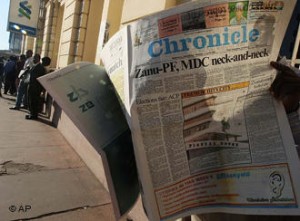
Not just for this reason, some reputable newspapers and news agencies around the world have their own headline specialists – experienced editors who focus on just drafting headlines. But if, like with most of us, you always have to write the headlines for your stories yourself, what are the things you should keep in mind?
![]() read more
read more
Searching with Google Alerts, custom search and other search engines
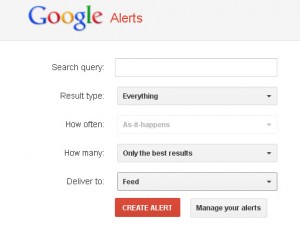 Using Google Alerts and Google custom search is an easy way to stay abreast of your beat and receive personalized results for your searches.
Using Google Alerts and Google custom search is an easy way to stay abreast of your beat and receive personalized results for your searches.
Unlike Google Reader and similar RSS-readers, Google Alerts doesn’t provide you with all the content from a specific site.
Instead, it searches the web for new entries which correspond to the keywords defined by you. The only thing you need to do is to set up the alert and check your emails for news from Google.
![]() read more
read more
Vox Pop (part II): How to find a good topic and ask the right question
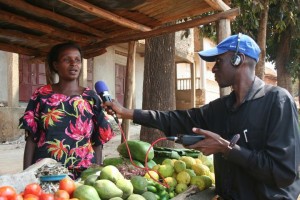
In the first part of our series about the vox pop, we discussed the pro’s and con’s of the vox pop as a journalistic format. Now, let’s get down to the actual business of making a vox pop.
Before you decide to produce a vox pop, you should make sure that the topic lends itself to this format. The spectrum of possible topics ranges from politics, business, sports and religion to social issues and everyday problems.
The best topics for vox pops are controversial issues that move the people. With these kinds of issues, you can be fairly sure that the answers you get from the people will be varied, interesting and usable. But other topics, such as consumer behavior, recreational activities, etc. are also possible.
What’s important is that the issue must be topical and of general interest. If only a minority of your listeners is interested in the topic of the vox pop, you run the risk that the majority of your audience will switch off. And it is very difficult to win back lost listeners.
![]() read more
read more



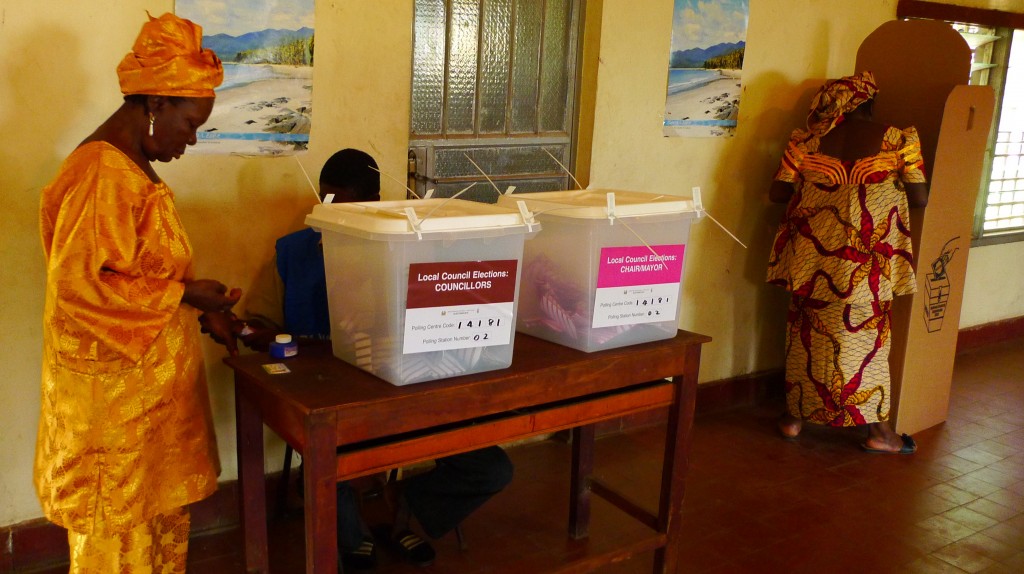
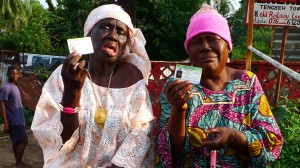
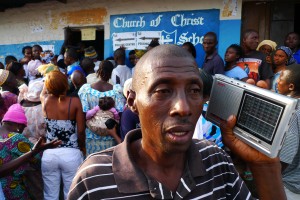

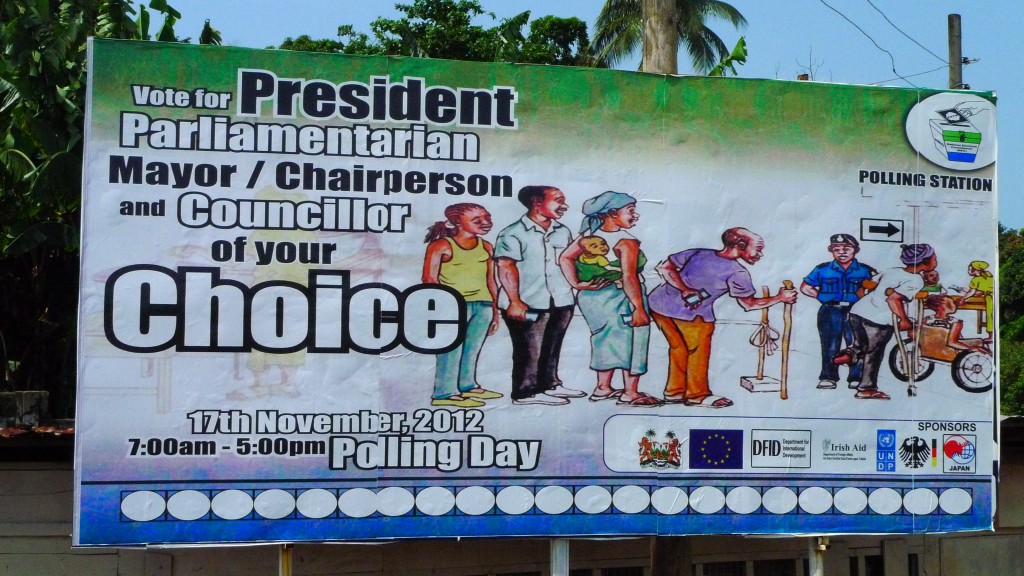
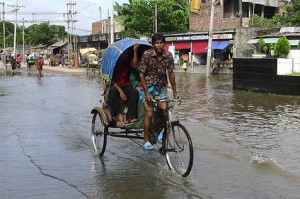




Feedback